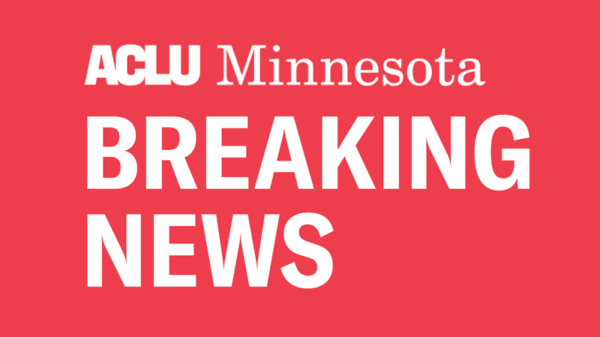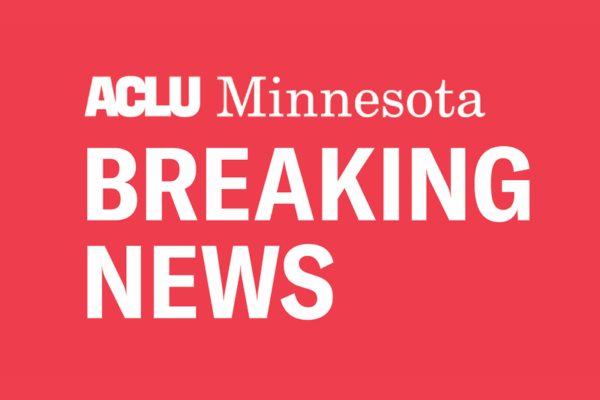The ACLU of Minnesota Releases Statement in Response to Executive Order 20-34:
The ACLU of Minnesota believes that protecting public health is enormously important, and we appreciate the hard work that Gov. Walz, his staff and many other public officials are doing to protect the people of Minnesota. We appreciate that he has tried to strike a balance between public health and the civil liberties that are so essential to democracy, even in the face of a pandemic.
Like everyone, we want our nurses, doctors, first responders and other people on the front lines of this public health crisis to stay safe.
But providing law enforcement with the deeply personal information of the addresses of people with COVID-19 is problematic on many levels. Any response to this crisis must be solidly informed by science and public health while intruding on our precious civil liberties no more than absolutely necessary.
The Governor acknowledges that any list of people with COVID-19 will be inaccurate and incomplete because “only a small proportion of those infected have been or can be identified through testing.” Providing a list with a clear undercount of COVID-19 cases violates our precious privacy rights without creating real safety for law enforcement.
The ACLU of Minnesota is concerned with how Executive Order 20-34 will be implemented. We ask that any protocol created by the Minnesota Departments of Public Health and Public Safety to put this order in place include:
- A tracking mechanism to ensure that police, emergency medical personnel and other first responders do not refuse or delay calls in service based on someone’s COVID-19 status
- Reporting to make sure that the same racial disparities found throughout our law enforcement and our criminal legal systems are not reflected in response rates
- A clear limit on how long this data can be retained
- A system for ensuring the data is deleted when it should be
- Transparency in determining what standards will be used to decide how long someone’s address stays in the database and when someone has been “cleared” from the system.
We ask the Departments of Public Health and Public Safety to create this protocol in a thoughtful and deliberate process that relies on public input to assure that the community’s voices are heard. Any order that intrudes on our precious privacy rights must be implemented in a way that minimizes these risks as much as possible while protecting public health.
Related Content

ACLU-MN Responds to COVID-19 Outbreak

ACLU-MN Urges Officials to Protect Vulnerable Populations Against COVID-19
Stay Informed
Sign up to be the first to hear about how to take action.
By completing this form, I agree to receive occasional emails per the terms of the ACLU’s privacy statement.
By completing this form, I agree to receive occasional emails per the terms of the ACLU’s privacy statement.

